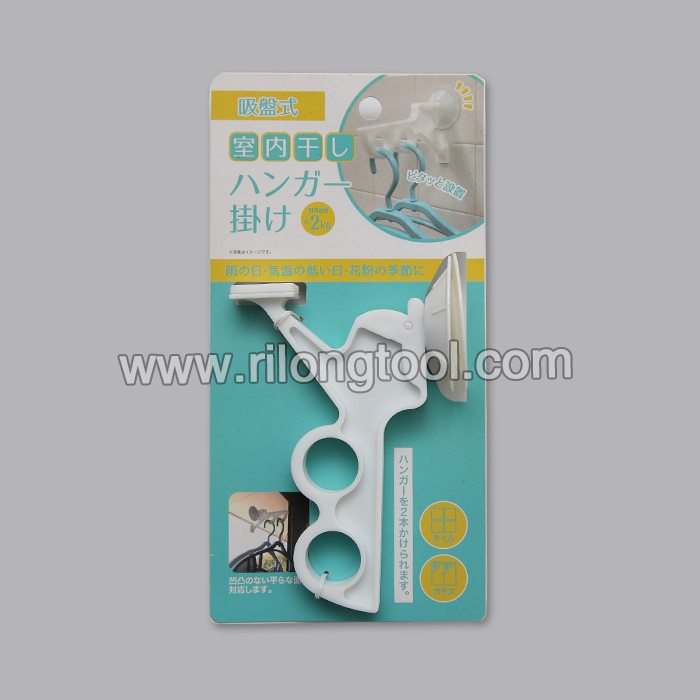High Efficiency Factory 5″ Forehand Round-Jaw Locking Pliers for Latvia
Short Description:
Product Detail
Product Tags
Our pursuit and company goal is to "Always satisfy our customer requirements". We continue to develop and design superior quality products for both our old and new customers and achieve a win-win prospect for our clients as well as us for High Efficiency Factory 5″ Forehand Round-Jaw Locking Pliers for Latvia, We are also constantly looking to establish relationship with new suppliers to provide innovative and smart solution to our valued customers.
Basic Information
■Model Number: RL-DLQ001A
Additional Information
■Material: A3# steel (Q235)
■Size: 5”
■Surface Treatment: Nickel-plated
■Heat Treatment: Optional
■Package: Suction Card
■OEM: Acceptable
■HS Code: 8203200000
■Samples: For FREE
■Delivery Time: Always 30 working days depending on the order quantity
■Packing: By standard cartons
Product Description
■Mainly used for clamping parts to rivet, weld, grind and so on, which is characterized by the powerful clamp force produced by the jaw. It can lock tight so that the parts won’t fetch away. Besides, jaws have a lot of levels to adjust for the use of different thickness of parts, and it also can be used as a wrench.
■Flexible using, long life and good tenacity.
■The screw tuning button can give the best clamp size easily.
Product Image
Subscribe and check out our home improvement book https://www.amazon.com/dp/B01BK2K0JM?ref_=pe_2427780_160035660.
The Milwaukee Cheater Pipe Wrench is an adjustable pipe wrench.
For tight spaces the handle is 10 inches long. If you need more leverage you can add the short cheater bar to get the leverage of an 18 inch pipe wrench. For large projects, the long cheater bar give you the leverage of a 24 inch pipe wrench.
The handle is rounded for a good grip and comfort.
The jaw allows a 2 1/2 grip range.
The dual coil spring design, located in the body of the wrench, maximizes durability and longer tool life. Lanyard holes are integrated into the handles, compatible with safety requirements on the jobsite.
The Archer 6 in 1 hand grip found on Amazon by searching archer hand exerciser – https://HandAndForearmExercises.com is an ergonomically designed adjustable hand grip exerciser for those with a weak grip, robust grip, or desiring finger strength and dexterity.
The hand gripper improves finger dexterity for playing the guitar and piano more proficiently. It helps to build grip strength in general. It can be used for hand therapy for those with finger and hand arthritis or those needing stroke recovery hand exercises. It will help improve grip strength for athletes, like rock climbers and bodybuilders, and help improve baseball and golf swing speed.
The adjustable hand gripper can help senior citizens improve their finger and hand strength and help loosen stiff fingers. It can also help relieve trigger finger and trigger thumb symptoms.
Three main features that make the Archer adjustable hand grip strengthener a good choice. They are:
1 – Its ergonomic design, with soft rubberized handles, offers not only hand and finger comfort but enables one to hold the hand grip in several positions so that various hand and finger exercises can be performed. The benefit is that this one exerciser can provide a better overall hand workout so this can save money on purchasing multiple pieces of hand exercise equipment.
2 – When the resistance is decreased the handles actually get narrow. This is unique and important because this will enable those with weak fingers, smaller hands, or needing hand therapy, to get their hand around the gripper easier. This in turn will make it more comfortable to squeeze the gripper, which in turn will allow more squeezes and a better finger and hand workout.
Also in the narrow position, those wanting to perform the ADVANCED finger and thumb exercises can do so and get a more thorough and effective workout. The benefit is that one exerciser can be used for multiple people with different hand exercise needs.
Similar looking adjustable hand exercisers DO NOT decrease the width of the handles when the tension is decreased. ALSO the resistance on some similar exercisers is double the resistance of the Archer Hand Exerciser. This will limit the number of finger exercises that can be performed and limit the number of users.
The resistance level is so high in some of these adjustable hand exercisers that MOST people will not use them at the full resistance level. On the other hand with the Archer 6 in 1 Forearm Workout equipment MOST people will get not only a good hand grip exercise but will also get good thumb and finger exercises as well.
3 – The hand exerciser is adjustable which means as you gain strength in your hands you can adjust the tension to meet your level of hand grip improvement.
If you want to supplement your hand and forearm workouts, the Archer 6 in 1 hand grip strengthener and forearm workout equipment may be for you.







